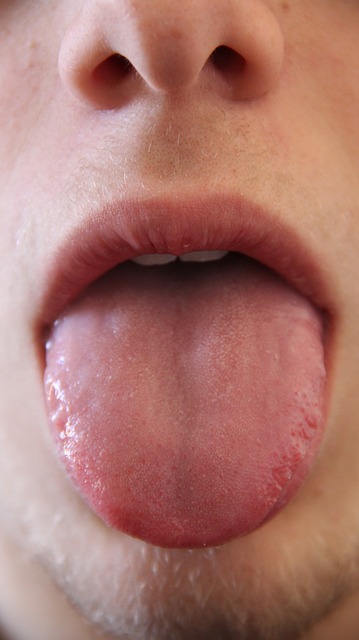At the end of every dental visit, your dentist asks you to stick out your tongue and they twist it side to side looking at the top, bottom, and every angle. It’s a part of your routine visit, but have you ever wonder why they look or what they’re looking for? Well, here’s your answer:
White Coating or Spots
What it could mean:
Oral Thrush:
While you may have heard of this before, contrary to public belief thrush is not an STD. It is instead, a type of yeast infection. The tongue may become covered with a white coating and can be cured with the help of your dentist and/or doctor.
Oral Lichen Planus:
This chronic inflammatory condition disrupts the mucous membranes in your mouth. Under this condition, raised white lines develop on the tongue. You may also experience painful open sores, the discomfort of red swollen tissues, and a burning sensation. Luckily it is not contagious, however, it should be closely monitored as the affected areas can become cancerous.
Leukoplakia:
This condition causes the cells of your mouth to grow rapidly. It is shown in white patches on the tongue and around the mouth. These patches cannot just be scraped off and while most are benign, they can be cancerous. If you notice these patches on your own, seek medical help immediately.
A Red Instead of Pink Color
What it could mean:
Vitamin Deficiency:
If you’re low on iron, folate, and vitamin B12 your tongue may develop red pigmentation. The tongue may also become sore and swollen.
Geographic Tongue:
This condition appears as red spots with a white border graphing itself throughout your tongue. The spots may change location from time to time. While the spots may appear smooth, the border will feel slightly raised. It can cause discomfort and sensitivity particularly pertaining to certain spicy, salty, or even sweet foods.
Scarlet Fever:
This bacterial infection causes a red rash throughout the body. One symptom is a tongue may appear red and bumpy. In the early stages of the infection, your tongue may also become covered with a white coating.
Kawasaki Disease:
This disease causes inflammation in the walls of arteries throughout the body. The coronary arteries, which supply blood to your heart, are the most affected making the condition very serious. A symptom that may be discovered by your dentist is a severely red and swollen tongue. Therefore your dentist may be the first person to detect the problem.
Dark Coloring or a Hairy Looking Texture
The papillae on your tongue continue to grow throughout your lifetime. However, excessive growth may result in your tongue appearing dark and hairy. In this case, the tongue becomes much more likely to sustain bacteria. It typically occurs in people who practice poor oral hygiene. On the other hand, it can develop in people with diabetes, as a result of antibiotics, or while undergoing chemotherapy.
Sores, Bumps, or Cuts
What may be the cause:
Smoking:
Smoking isn’t just bad for your overall health, it directly affects your oral health too. When it comes to your tongue smoking can cause irritation and soreness.
Canker Sores:
From time to time you may develop canker sores on the inside of your mouth as well as on your tongue. They can be extremely irritating and while the exact cause is unknown are thought to be related to stress.
Grinding or Clenching Your Teeth:
This can damage your teeth, cause pain in your jaw, and result in painful irritation for your tongue. Your dentist may recommend a mouth guard for sleeping.
Biting Your Tongue:
It happens to the best of us. Accidentally biting your cheek or tongue can cause pain for days, but it can also result in scrapes or cuts.
Burns:
Eating something scalding hot can result in soreness. If the pain persists, your dentist should be notified.
Cancer:
Oral cancer may result in visible sores on the surface of your tongue. The sores may or may not hurt, but either way, they need to be observed by a medical professional.
To prevent these issues and keep your mouth and tongue healthy in general don’t forget to scrape or brush your tongue after you’ve brushed your teeth. The dentist might be the one place it’s appropriate to stick out your tongue. At the end of the day looking at your tongue is a vital part of the oral health exam and we’ll help to ensure that every part of your mouth (and not just your teeth) is healthy. Just remember, a look at your tongue from a dentist might just save your life.
